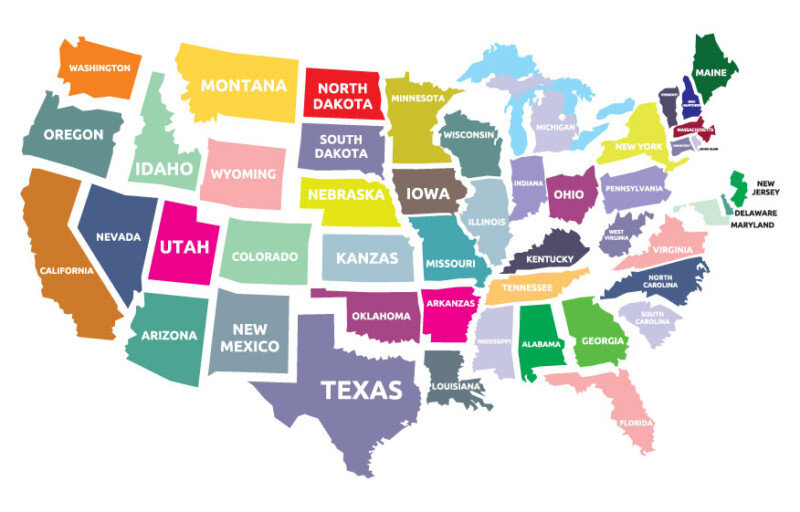With a bad location ranked as one of the top reasons for business failure, choosing where to launch your business can be almost as important as choosing what business to start. In this post, we’ll look at the top states for startups based on WalletHub’s survey, and share expert insights on what to look for in an ideal location.
Best and Worst States for Startups
In this study, WalletHub compared all 50 states across 25 key indicators of startup success to determine the best environments to launch and grow a small business. The three key dimensions were business environment, access to resources, and business costs. Then each dimension was evaluated using 25 relevant metrics, including the average growth in the number of small businesses, the average first-year survival rate, ease of access to resources for businesses, the area’s cost of living, corporate taxes, and other factors.
Based on overall rank, the top 10 states to start a small business are:
- Utah
- Florida
- Texas
- Colorado
- Idaho
- Georgia
- Arizona
- Nevada
- California
- Oklahoma
Top states for the strongest business environment:
- Florida
- California
- Colorado
- Texas
- Georgia
Top states for having access to resources:
- Utah
- California
- Washington
- New York
- Massachusetts
Top states for the lowest business costs:
- Oklahoma
- Mississippi
- West Virginia
- Kentucky
- South Dakota
And finally, the worst states to start a business:
- Alaska – a low performer across all metrics
- Connecticut – low performance in both business environment and costs
- West Virginia – low performance in business environment and resources
- New Jersey – the most expensive state
- Rhode Island – one of the worst performing states for business environment
Ready to Launch? Here’s What to Consider
While studies like this one from WalletHub can give you a head start on identifying potential locations for your business, you should also do your own research before making a decision.
Additional criteria to consider:
- Government Regulation – What should you consider when deciding whether to move to a different state to start your business? Both federal and state policies and regulations regarding small businesses make a difference.
- Education – Looking at the type of entrepreneurial education a state or city’s schools and colleges offer can be one way to assess a location. When K-12 schools and colleges are involved in promoting entrepreneurship, it provides opportunities for your business to tap into the expertise of the school’s faculty, the quality of students, the success of alumni, mentorship programs, and more.
- Financial Stability – Instead of looking for state tax incentives, he suggests businesses will do better to look for a state that is well-run and fiscally responsible in the long term.
- Infrastructure – Companies should also consider the availability of an adequate workforce, transportation, and other factors when making a location decision.
- Startup Support – He notes the spread of startup culture, the affordability of technology, and the availability of venture capital in locations outside Silicon Valley have made it possible for startups to succeed in more places.
Don’t forget to look into the business incentives available in a state, the state’s small business regulations, and your industry’s presence in a state before you pack up and move.
Make the Right Choice
Choosing the best state to start a business requires assessing a variety of factors. Develop a list of your “must-haves” and “nice-to-haves” so you can create your own ranking of locations.
Read other surveys, use social media to talk to business owners, and contact places like the local Chamber of Commerce, Economic Development Agency, Small Business Development Center, or SCORE office in the areas you’re considering.
And of course, listen to your gut. By taking these steps, you’re sure to make the right choice for your new business.





